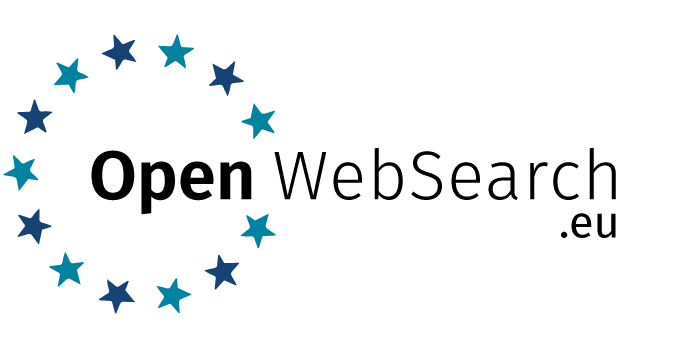#wows2024 International Workshop on Open Web Search announced – Call for papers and software is open
The first International Workshop on Open Web Search #wows24 will take place in Glasgow on 28 March 2024.
Organised by the OpenWebSearch.eu community and co-located with the #ECIR2024 conference, the first #wows workshop calls the information and retrieval and Open Web Search community. Especially doctoral students, but also early-stage students such as Master‘s and Bachelor‘s students of #ComputerScience, #InformationScience, #InformationRetrieval and #NLP are welcome to submit their scientific work and software implementations. The organisation team offers #mentoring for the practical part of submitting to early-stage #students such as master’s and bachelor’s students.
Submitted can be scientific papers and implementations of retrieval components for the first #wows24 in Glasgow:
Submitting period for papers starts in January 2024.
Submission for software components is already open.
Find more information about the workshop and how to participate on the website: https://opensearchfoundation.org/wows2024
NGI Forum 2023 Brussels – Recap and Recordings
In November, the #NGIForum23 took place in Brussels. With a focus on Digital Commons, the gathering brought together thought-leaders, policy makers, researchers and innovators in an inspiring event to discuss an open, more secure and citizen-centred internet of the future.
“Ethical, open and non-commercial: the Open Web Search project is designed to provide Europe with the right alternative to existing search engines” | CERN news
Our project partner CERN featured OWS.EU in their news section. Very readworthy article about the Open Web Search project and its goal of securing Europe’s contributing to Europe’s digital sovereignty as well as promoting an open human-centered search engine market.
“Together with the other partners, we have started by simply discussing possible ways of building a new neutral indexing system,” explains ows.eu team member Andreas Wagner from CERN. “Although the system is still very preliminary, running the it on our own set of webpages at CERN has proved useful as it has allowed us to learn critical things about our own internal search engine. In other words, the project will also help CERN to improve its own search capabilities and will provide an open science search function across CERN’s multiple information repositories.”
Read the full article on the CERN news section
Common Goals with Common Crawl
OWS.EU constantly thrives to move forward with more transparent, self-determined web search. With the aim to build a Europe-based Open Web Index, choosing trustworthy, powerful crawling partners is key. Common Crawl is one such dedicated and renowned partner. It is therefore an honor to be featured on their website in the official partners section.
“Common Crawl is not only a major resource for web-innovations, but also an inspiring partner. We are particularly looking forward to co-operating on license-aware crawling and to integrate their crawls into our open web index,“ says Michael Granitzer, OWS.EU’s principal investigator.
The Common Crawl Foundation is an NGO that crawls the web and freely provides its archives and datasets to the public. Its mission: to democratize Open Web Search, “enabling free access to web crawl data encourages collaboration and interdisciplinary research, as organizations, academia, and non-profits can work together to address complex challenges.” The non-profit has significantly expanded its core team throughout the last two years and is continually growing.
We are proud to be an early partner, sharing a similar vision.
Six new partners to enrich OpenWebSearch.EU project | Media Release
Six third-party partners have joined the EU funded project OpenWebSearch.EU, introducing new technical, legal and economic research topics in support of a European Open Web Index.


Get in touch with the OpenWebSearch.eu community
Funded by the
European Union
The project OpenWebSearch.EU has received funding from the European Union's Horizon research and innovation programme under grant agreement No 101070014.

